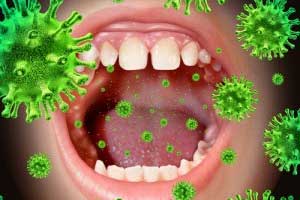- Home
- Editorial
- News
- Practice Guidelines
- Anesthesiology Guidelines
- Cancer Guidelines
- Cardiac Sciences Guidelines
- Critical Care Guidelines
- Dentistry Guidelines
- Dermatology Guidelines
- Diabetes and Endo Guidelines
- Diagnostics Guidelines
- ENT Guidelines
- Featured Practice Guidelines
- Gastroenterology Guidelines
- Geriatrics Guidelines
- Medicine Guidelines
- Nephrology Guidelines
- Neurosciences Guidelines
- Obs and Gynae Guidelines
- Ophthalmology Guidelines
- Orthopaedics Guidelines
- Paediatrics Guidelines
- Psychiatry Guidelines
- Pulmonology Guidelines
- Radiology Guidelines
- Surgery Guidelines
- Urology Guidelines
Drinking leads to chronic diseases by influencing oral microbiome

Drinking alcohol can lead to dysbiosis (microbial imbalance) of the oral microbiome which is linked to heart disease and cancers of the digestive tract, neck, and head, according to a study published in the journal Microbiome. The study was conducted by Jiyoung Ahn, associate director of population sciences at NYU Langone Health's Perlmutter Cancer Center, and colleagues to determine the impact of alcohol on the oral microbiome.
"Our study offers clear evidence that drinking is bad for maintaining a healthy balance of microbes in the mouth and could help explain why drinking, like smoking, leads to bacterial changes already tied to cancer and chronic disease," says Dr. Ahn.According to Ahn, rebalancing some of the 700 types of bacteria in the mouth, or oral microbiome, could potentially reverse or prevent some health problems tied to drinking.
Doctoral student and study first author Xiaozhou Fan, MS, says previous studies have examined alcohol consumption and its broad links to disease and some changes in the microbiome, but the new report is the first to directly compare drinking levels and their effects on all oral bacteria.
Specifically, drinkers had more of the potentially harmful Bacteroidales, Actinomyces, and Neisseria species, and fewer Lactobacillales, bacteria commonly used in probiotic food supplements meant to prevent sickness.
The study involved 1,044, mostly white participants between the ages of 55 and 87. All came from two ongoing, national cancer trials, and all were healthy when they enrolled in either study and provided mouthwash samples of their oral microbiome, along with detailed information about their alcohol consumption. Laboratory testing was then used to genetically sort and quantify the oral bacteria among the 270 nondrinkers, 614 moderate drinkers, and 160 heavy drinkers. Results were plotted on graphs to determine which bacteria in drinkers stood out -- and grew more or less -- than in nondrinkers.
Researchers note that while their study was large enough to capture differences between bacteria among drinkers and nondrinkers, more people would be needed to assess any microbiome differences among those who consumed only wine, beer, or liquor. Some 101 wine-only drinkers were involved in the latest study, in addition to 39 who drank only beer and 26 who drank only liquor.
Ahn, says her team's next steps are to work out the biological mechanisms behind alcohol's effects on the oral microbiome. And she emphasized that her work is still a long way from determining if blocking or promoting any particular changes in the microbiome would lead to healthy bacteria levels similar to those found in nondrinkers.
Possible explanations microbiome imbalances related to drinking according to Ahn, is the acids in alcoholic beverages that make the oral environment hostile needed for growth of certain bacteria. Another reason is the buildup of harmful byproducts resulting from breakdown of alcohol, including chemicals called acetaldehydes, which along with the harmful toxins in the mouth from tobacco smoke, are produced by certain bacteria, such as Neisseria.
For further information click on the link: https://doi.org/10.1186/s40168-018-0448-x

Disclaimer: This site is primarily intended for healthcare professionals. Any content/information on this website does not replace the advice of medical and/or health professionals and should not be construed as medical/diagnostic advice/endorsement or prescription. Use of this site is subject to our terms of use, privacy policy, advertisement policy. © 2020 Minerva Medical Treatment Pvt Ltd